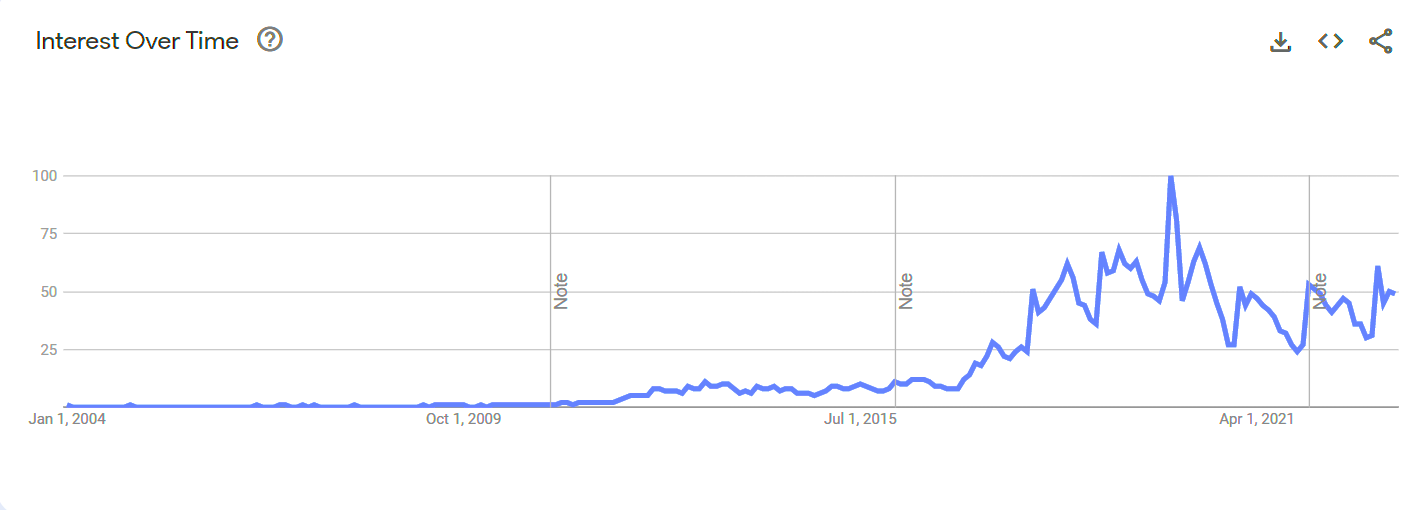Intermittent Fasting? Yes, We’ve Heard of It.
A dietitian shares the physical effects of fasting for Ramadan and for health.
April 10, 2023
As Ramadan reaches its end, Muslims around the world are wrapping up a month of worship best recognized for the practice of fasting from sunrise to sunset. For some, the practice brings to mind a type of diet that has gained popularity in recent years—intermittent fasting.
Despite new interest, fasting itself is far from new. Medical fasting can be traced back to at least the 5th century B.C. according to Encyclopedia Britannica. And religious fasting, including in pre-Columbian Native and South American civilizations, existed tens of thousands of years before that. Today, all major Abrahamic religions—Judaism, Christianity and Islam—as well as a number of South Asian religions, including Hinduism and Jainism, have some concept of fasting. To discuss the effects of fasting, the Courier interviewed Faoqiya Fatima, a clinical dietitian at Central DuPage Hospital and a Muslim who practices fasting in Ramadan.
Q: What is intermittent fasting and its purpose?
A: Intermittent fasting is a method in which a person consistently switches between a period of fasting and a period of eating. Instead of focusing on what to eat like most diets do, intermittent fasting is all about timing and when you eat. The purpose of it is to increase the period of time in which your body burns calories from the last meal, so it can burn the calories consumed and then begin to burn fat. Normally with 3 meals plus snacks and not exercising enough, the body doesn’t have much time between eating to burn off the calories from the last meal to the next meal. With intermittent fasting, the body is given ample time to effectively burn off the calories eaten and also begin to burn fat.

Q: Have you noticed more people talk about/become interested in intermittent fasting as a diet option in recent years?
A: Yes I have. It has become more popular in recent years, and I’ve seen many people opting for intermittent fasting since it’s time based rather than food based. Many people like to keep their food choices and then just limit the time in which they eat. Although it’s best to consume healthy fats, lean proteins and a variety of fruits and vegetables while doing intermittent fasting, some notice that they eat less of anything with the time restriction and in turn consume less calories, which leads to weight loss.
Q: What differences or similarities do you see between intermittent fasting and Ramadan fasting?
A: In Ramadan, Muslims go through a period of fasting between dawn to sunset. In recent years fasts have been about 14-16 hours long. This leaves about 8-10 hours of eating. Within those hours however, most people also sleep. This leaves an even smaller number of hours in which meals are consumed. This is very similar to intermittent fasting. The only key differences between the two are: in intermittent fasting, you can choose your hours of fasting and eating, while in Ramadan it is always from dawn to sunset, and in intermittent fasting you can have water and zero calorie beverages such as tea and coffee. In Ramadan fasting, no food or drink is allowed.
Q: What advice do you have for people to help stay healthy in Ramadan?
A: In Ramadan, many people I come across complain of gaining weight instead of losing it even when fasting for a whole month. This is because many times in Ramadan people tend to eat very high calorie foods. Most foods are fried or include lots of oil/butter. This leads to overconsumption, and people eat more calories than they normally would. The advice I’d give to remain healthy is to make sure to eat in moderation. Make sure to include a variety of fruits and veggies on the iftar [meal eaten upon breaking the fast] table. Choose lean protein options and try to choose baking, grilling or air frying methods when cooking. When going to iftar parties or breaking the fast in the masjid when you can’t pick your food options, eat in moderation rather than filling the plate.
Q: Do you have any specific advice for people with jobs that require high physical exertion or who are athletes?
A: Make sure to eat a protein and fiber-rich meal for suhoor [meal eaten before the fast begins at sunrise]. This will allow your body to slowly digest, and you can have more energy through the day. Eating simple carbs/sugars and not having enough fiber will cause the body to digest quickly and will leave you with low energy the rest of the day. I would also recommend staying hydrated through the night. Try to get in 8-10 cups of water minimum. Keeping a water bottle during the night taraweeh prayers [long prayer offered by Muslims only in Ramadan] and having water with the iftar and suhoor meals will help reach that goal.
Q: How did your education and career as a dietitian/nutritionist affect how you see fasting for Ramadan?
A: I grew up fasting in Ramadan from a young age, and when I started learning about the science behind it and how it works in the body, it really fascinated me. I became more conscious of my food choices in order to gain the most benefit from what I was already doing in Ramadan every year! I also used my knowledge to make my family and friends much more conscious of the food choices they make in Ramadan and noticed that they all felt more healthy and refreshed by the time Ramadan finished and saw differences in their bodies.
While people continue to fast for religious reasons, the interest in fasting pushes curiosity and further research. Centuries of experiences can offer insight to those trying fasting for the first time, and newer scientific research can help explain long-lived practices and help maximize the potential of fasting.


















